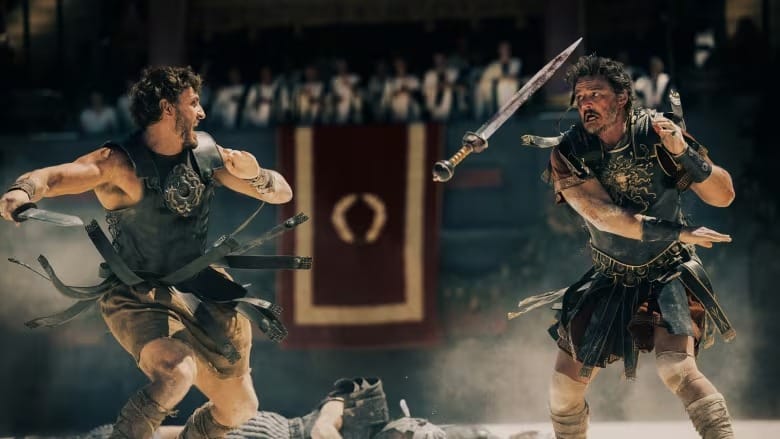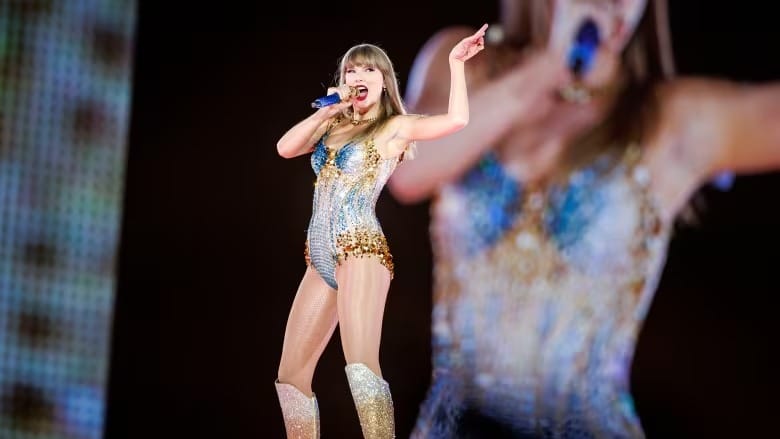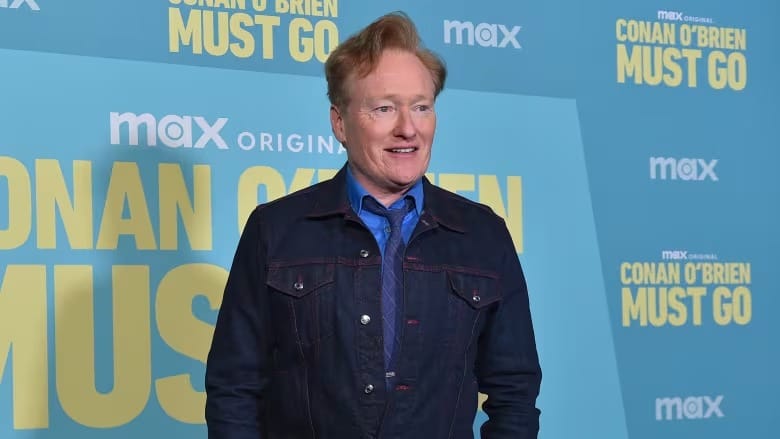Not so entertained. The highs and lows of Gladiator II
Back to carnage in the Colosseum where the spirit of the original looms large

Ridley Scott, known for his iconic films like Alien, Blade Runner, and Black Hawk Down, has long been a master at creating intense, captivating cinematic worlds. His storytelling draws us in, taking us to places we’ve never seen before. In 2000, with a 35-year-old Russell Crowe and a studio hesitant about a sword-and-sandals epic, Scott delivered Gladiator, a film that thrust audiences into the heart of the Colosseum. If you haven’t revisited the original in a while, its pace might surprise you.
Rather than being slow, Gladiator is deliberate, carefully establishing the motivations and backgrounds of its characters. We meet Crowe’s Maximus on the battlefield, showcasing his leadership and strategy, followed by the tragedy of his family’s fate, setting the stage for his inevitable quest for revenge. Crowe’s powerful performance and fury-filled voice made for a compelling, quotable, and highly watchable film. In today’s world, where studios increasingly lean on pre-existing intellectual property, it’s not surprising that Scott and Paramount Pictures have chosen to return to the world of Rome with Gladiator II, set to release on Friday.
What is surprising, however, is just how closely the sequel mirrors the original — though with far less impact.
Evil Emperors and the Decline of Rome
Gladiator II picks up 20 years after Maximus’s death, where the dream of a more democratic Rome has been crushed by the rule of the tyrannical emperor twins, Caracalla and Geta (Fred Hechinger and Joseph Quinn). Meanwhile, Lucius, the son of the late emperor's daughter Lucilla, has gone into hiding in Africa Nova for his own safety. However, the emperors’ hunger for power knows no bounds. Their forces, led by General Acacius (Pedro Pascal), march to seize Lucius, who, after a crushing defeat, is sold into slavery to Macrinus, a gladiator merchant played by Denzel Washington.
Connie Nielsen reprises her role as Lucilla, while Paul Mescal takes on the lead as the new gladiator, battling his grief in the arena. At his side is Pascal’s Acacius, a virtuous general fighting for Rome’s soul, while Lucilla slowly discovers her own ties to the gladiator her people are cheering for.
A Super-Sized He-Man
Mescal has displayed remarkable vulnerability in roles such as All of Us Strangers and Aftersun, where his quieter performances allow the complexity of his character to shine. It’s strange, then, to see him transformed into a heroic warrior, cleaving through nameless enemies in Gladiator II.
The film jumps into action without fully explaining how Lucius, once a scrawny child in the original film, has become a skilled warrior. The dialogue does little to flesh out his character, with lines like, “This is about survival… Survive,” failing to develop his leadership qualities. Instead of allowing Mescal to craft a unique performance, the script and direction push him to echo Maximus, with some of his lines even sounding like a mimicry of Crowe's iconic voice.
A Roman Orgy of Excess
As for the action, Gladiator II goes overboard in its excess. From killer baboons to a soldier riding a battle-armored rhino, the film throws in one absurd spectacle after another. A naval battle, where gladiators and Roman soldiers navigate warships through shark-infested waters, stands out as a chaotic and muddled set piece. Rather than showcasing Lucius's leadership, Scott bombards the audience with quick cuts, making it hard to follow the strategy or appreciate the intricacy of the battle.
The Dazzling Denzel
In the midst of all this excess, there’s one standout: Denzel Washington. At 69, Washington brings a vibrant and devious energy to his role as Macrinus. His performance is magnetic, using his experience and charisma to elevate the film. With every arch of the eyebrow and the subtleties of his dialogue delivery, Washington makes Macrinus his own, leaving the audience questioning whose side they should really be on.
While Mescal’s performance is confined by the shadow of Crowe’s Maximus, Washington enjoys the freedom to create a character who is sly, captivating, and utterly entertaining. His portrayal of Macrinus is a masterclass in subtlety and charm, adding a spark of life to an otherwise uninspired sequel.
A Shallow Spectacle
The original Gladiator wasn’t just a surprise hit — it had something to say about the power of spectacle and the distractions of politics. Maximus’s question, “Are you not entertained?” called out to the crowd, as well as the politicians who kept them distracted with entertainment.
Yet, 24 years after the original film, Gladiator II fails to offer any deeper message. Instead of a critique of power or spectacle, the sequel becomes a shallow nostalgia trip, focusing on empty grandeur rather than substance. It’s a spectacle built on the bones of a much stronger film, offering little more than a hollow echo of its predecessor.





